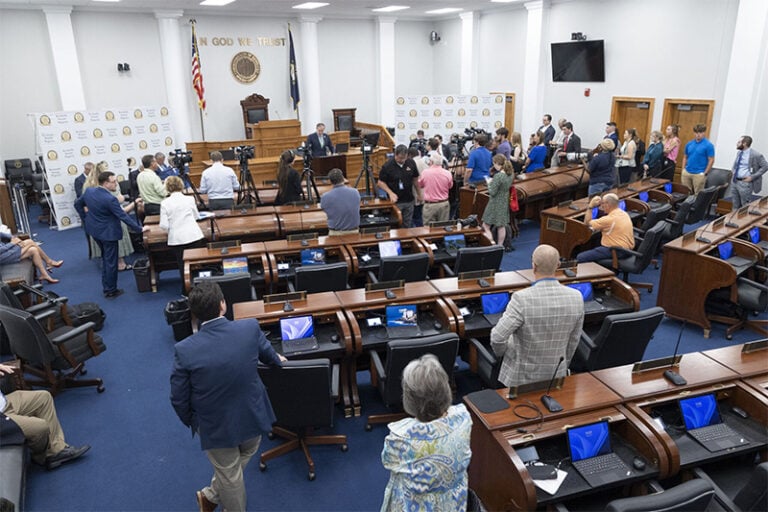It’s no secret that countries around the world are racing to lead in artificial intelligence (AI), but not every country plays by the same rules.
Last year, I warned the public to remain vigilant about China’s infiltration of foreign networks to steal intellectual property and trade secrets. Their unfair and often illegal tactics continue to threaten the backbone of our society: our critical infrastructure.
Just last week, intelligence reports revealed the presence of Chinese-made components with hidden backdoor vulnerabilities embedded in U.S. telecommunications systems. When a foreign adversary can potentially disrupt communication networks, energy grids, or water systems with the flip of a switch, we are no longer talking about hypothetical risks. We are facing the possibility of national paralysis or worse. Their infiltration into our critical infrastructure should be deeply alarming to all Americans.

At the same time, reports are emerging of AI-driven humanoid robots displacing workers in Chinese manufacturing plants. For many years, people have feared that AI could disrupt the labor force. It now appears that future is much closer to becoming a reality.
Critical infrastructure doesn’t just rely on machines. It also depends on skilled human workers to monitor, repair, and maintain complex systems. If automation replaces large segments of the workforce without sufficient planning or retraining, the reliability of these systems could be severely weakened, leaving us all at risk.
And I am not alone in my concern. The fear surrounding China’s unchecked development of AI is not limited to cybersecurity experts. More and more Americans, regardless of technical background, are beginning to understand the risks of allowing authoritarian regimes to shape the future of this powerful technology.
National Review’s national security correspondent, Jimmy Quinn, recently reported on the widespread opposition to China’s approach to AI. According to a Mercury Analytics poll conducted on behalf of the American Edge Project, 2,000 Americans said they worry that if China becomes the global leader in AI, it could jeopardize U.S. national security, enable surveillance and censorship, and hand China a significant economic advantage.
They are right to be concerned.
China’s AI model is not designed to empower citizens. It is designed to monitor and control them. It does not build public resilience, rather it tightens the government’s grip on power and undermines the foundations of free and open societies.
If this model spreads without challenge, the consequences for the United States will be severe. We risk being outpaced in critical innovation, shut out of emerging digital markets, and surrounded by an expanding network of countries that embrace surveillance and authoritarian tech governance.
This is not some distant future threat. It is a present-day contest over whose values will define global technology and ultimately, the global economy.
Let me be clear. AI itself is not the enemy. But whoever controls AI and how it is integrated into our infrastructure will determine whether it protects our freedom and prosperity or threatens it.
The United States and our democratic allies must lead by example. That means investing in ethical AI, demanding transparency in development, and holding bad actors accountable.
The future is being written in code right now. If we do not write the rules, someone else will. And they may not have freedom in mind. This is a race we must win.
Dave Hatter is an award-winning technology leader with over 30 years of software engineering and cybersecurity experience and works as a Cybersecurity Consultant at Intrust IT. He has also served as the Mayor of Fort Wright since 2015.

















